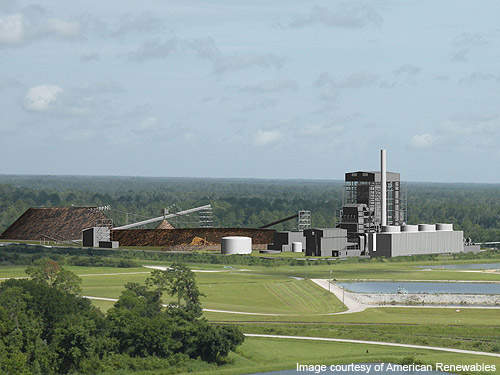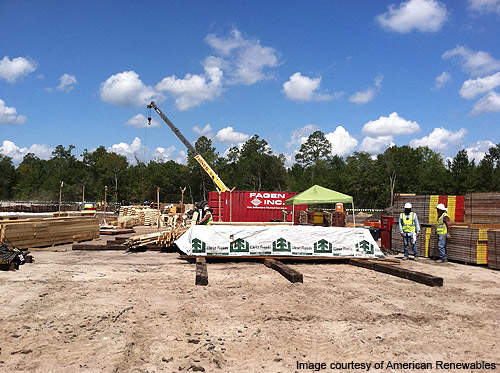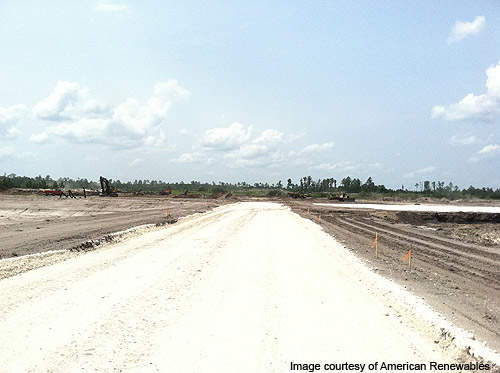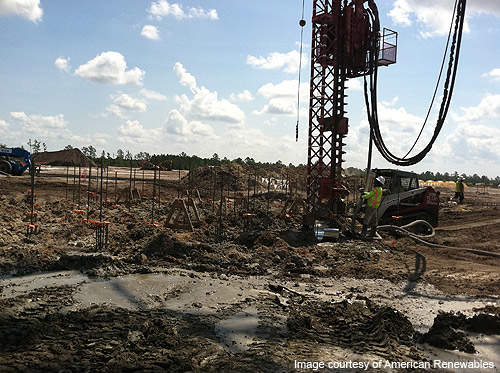The Gainesville Renewable Energy Center (GREC) is a 102.5MW biomass-fuelled power plant developed in Gainesville, Florida, US.
Massachusetts-based American Renewables built the plant at a cost of $500m. Construction of the GREC started in March 2011 and commercial operations were started in December 2013.
The plant supplies renewable energy to approximately 70,000 households in the Gainesville region through a 30-year power purchase agreement signed with Gainesville Regional Utilities (GRU) in May 2009.
GREC helps to reduce the region’s dependence on imported coal. It is eligible for federal tax credits, which results in significant savings for GRU ratepayers.
During the construction phase of the plant, 1,100 direct and indirect jobs were generated. After completion, 44 permanent jobs were created to operate and maintain the plant.
GREC project history
Gainesville’s power needs were being met by three power plants operated by Gainesville Regional Utilities (GRU).
Energy demand in the region has been increasing at a faster rate than what the existing power plants can produce to cope with demand. In 2003, GRU had felt the need to build an additional plant to meet the unmet demand by 2023.
Since GRU’s existing plants are nearly 30 years old, improving the reliability of its power generation portfolio was also essential.
GRU searched for alternative options and considered the idea of building a 220MW coal-fired plant as an extension to the existing Deerhaven generating plant.
The idea was, however, dropped after opposition from locals. GRU later considered 28 options, including wind and solar energy plants to solve the region’s energy problems.
A biomass-fuelled plant was selected as it would be the most cost-effective and reliable renewable source of energy.
GRU invited companies to build a biomass-fuelled power plant in the city and American Renewables was selected among the shortlisted companies.
Development of the biomass fuelled power plant
The development of GREC was based on the success of a similar 102.5MW biomass plant called Nacogdoches Power, developed by American Renewables in Texas. The project was approved by Florida’s public service commission in June 2010. Site approvals and permits were received in December 2010.
The GREC is located on a 131-acre parcel of land leased from the city of Gainesville. Green energy design-builder Fagen was appointed as the engineering, procurement and construction contractor.
Financing
A group of six banks, including Bank of Tokyo-Mitsubishi UFJ, Natixis, Rabobank Nederland, ING Capital, Crédit Agricole and Société Générale provided the project with non-recourse debt finance. Energy Management, BayCorp Holdings and Tyr Energy provided equity finance.
Gainesville Renewable Energy Center plant details
The plant features a wood fuel handling system supplied by Wolf Material Handling to process the biomass fuel received from various sources. The fuel is received at the wood yard in chipped form.
It is screened, blended and stored at the yard. It is continuously supplied from the yard to the plant’s boiler through a conveyor.
A state-of-the-art bubbling fluidised bed boiler supplied by Metso Power burns the biomass fuel at the plant. The boiler has a highly efficient design, which minimises emissions.
The steam generated by the boiler is passed through a condensing steam turbine generator supplied by Siemens to generate electricity. An evaporative cooling tower and other equipment are also part of the plant.
Metso also supplied the automation system for the facility. Operations and maintenance of the plant are carried out by NAES.
GREC requires roughly one million tons of biomass fuel a year for its operations. The fuel is sourced from within a 75-mile radius of the site. The region in which the plant is built includes 77 million acres of forest. The forest biomass from this region, including tree tops, logging residues from commercial tree harvest and land clearing, is procured.
Urban wood in the form of municipal brush, pallets and waste from tree clearings and tree surgeons are also sourced. The plant also uses mill residues such as wood chips, saw dust and shavings.
BioResource Management, a local Gainesville company, is responsible for the fuel procurement.
In September 2010, a wood supply agreement was signed with Wood Resource Recovery to supply about half of the wood required by the plant. During the construction phase, GREC will sign additional fuel supply contracts.
Local environmental impact
GREC used advanced emission control equipment to reduce its environmental impact. The plant helps in achieving effective utilisation of the waste biomass generated in the timber region of Gainesville.
These materials were earlier burned in the open, sent to landfill or left to decay resulting in the release of greenhouse gases. The new plant has significantly reduced the particulate matter and dioxins released by such open burning.









